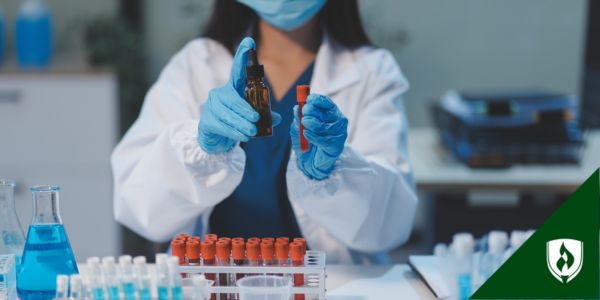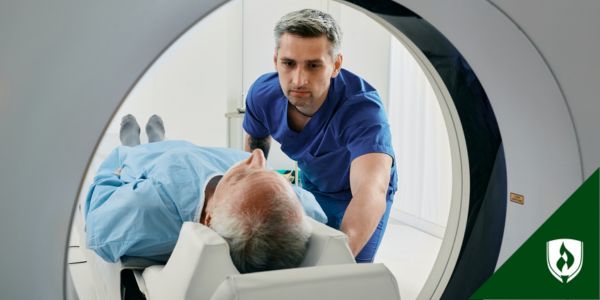
Have you ever stopped to think about the diverse and intriguing world of health sciences? It’s a field that spans centuries of development, includes numerous disciplines and impacts our daily lives in countless ways. From ancient remedies to modern technology, health sciences encompass everything we’ve learned about improving human health and well-being.
Beyond the well-known areas like medicine and nursing, health sciences also cover fields such as epidemiology, nutrition and public health. It involves research and innovation to understand diseases, develop treatments and promote healthy lifestyles.
Health sciences professionals work in various settings, including hospitals, laboratories and community organizations, all striving to enhance the quality of life and health outcomes for individuals and populations.
The history of health sciences
To truly appreciate health sciences, we need to journey back to ancient civilizations. Imagine the Egyptians crafting herbal medicines or the Greeks prioritizing physical fitness. These early efforts were the building blocks of what we now call health sciences.
They were the pioneers, attempting to decode the mysteries of the human body and discovering remedies along the way.
The renaissance breakthroughs in anatomy
Fast forward to the Renaissance, a period of remarkable breakthroughs in anatomy, physiology, and pathology. Think of Leonardo da Vinci's Anatomical Drawings and Andreas Vesalius, whose meticulous dissections and studies (now standard topics in medical school) unveiled the intricate workings of our bodies. Their contributions were significant, influencing the future of health sciences.
Discovering microorganisms and vaccines
Over the centuries, monumental discoveries like microorganisms and vaccines catapulted health sciences into new realms. Imagine the excitement of scientists as they unveiled the hidden world of microbes, leading to giant leaps in microbiology and immunology. These advancements transformed our approach to preventing, diagnosing, and treating diseases.
Public health challenges and innovations in the industrial revolution
The industrial revolution was a game-changer for health sciences. As factories sprang up and cities grew, public health challenges emerged. Enter visionaries like Florence Nightingale, who championed modern nursing and the crucial role of sanitation in healthcare in the 19th century.
Thanks to her and others, patient care improved dramatically. This era also saw the birth of specialized health science programs and degrees, with universities launching courses in medicine, nursing and public health.
The birth of modern nursing in the 19th century
Jumping to the 20th century, medical technology and pharmaceuticals saw unprecedented growth. Think about Alexander Fleming’s discovery of antibiotics – a milestone that greatly impacted bacterial infection treatment and saved innumerable lives.
At the same time, the human genome mapping paved the way for personalized medicine, introducing targeted therapies based on individual genetics. Medical schools were at the heart of these innovations, training the next generation of health science professionals and driving research forward.
Major disciplines in health sciences
Health sciences cover a broad spectrum of disciplines, each playing an important role in our understanding of health and disease. Most higher education institutions have medicine and nursing as two separate fields of study, with health sciences (covering many potential career paths) as a third field.
Let’s take a closer look at a few key areas:
- Pharmacology
Pharmacology delves into the intricate world of drugs, studying their origins, chemical properties, biological effects, and therapeutic uses. Pharmacologists research and develop new medications, ensuring their safety and efficacy.
This field bridges the gap between laboratory science and clinical practice, contributing to the advancement of personalized medicine and improved treatment outcomes.
Rasmussen University does not offer any programs that will lead to the career opportunity of Pharmacologist.
- Public health
Public health focuses on the health of communities and populations, aiming to prevent disease and promote health through education, policy-making and preventive measures.
Public and community health professionals work on issues such as infectious disease control, environmental health and health promotion. Their efforts lead to improved quality of life and increased life expectancy on a population scale.
- Biomedical sciences
Biomedical scientists investigate the cellular and molecular foundations of human health and disease. They conduct research to understand how biological processes affect the body, leading to the development of new diagnostic tools, treatments and therapies.
Their discoveries pave the way for advancements in medical science and technology.
Rasmussen University does not offer any programs that will lead to the career opportunity of biomedical scientist.
- Nutrition
Nutrition explores the relationship between diet and health, aiming to promote balanced eating habits for optimal physical and mental well-being.
Nutritionists and dietitians assess dietary needs, develop nutrition plans, and educate individuals and communities on healthy eating practices. Their work helps prevent and manage health conditions related to diet, such as obesity, diabetes and cardiovascular diseases.
Rasmussen University does not offer any programs that will lead to the career opportunity of nutritionist.
- Physical therapy
Physical therapy is dedicated to helping individuals recover from injuries and disabilities through targeted exercise, manual therapy and other physical methods. Physical therapists assess and treat movement dysfunctions, develop rehabilitation plans and provide education on injury prevention. Their goal is to restore function, improve mobility and enhance the quality of life for their patients.
These disciplines often work in synergy, each contributing unique perspectives and expertise to the vast landscape of health sciences. Through collaboration and interdisciplinary approaches, professionals in these fields aim to improve the health outcomes of individuals and communities.
Rasmussen University does not offer any programs that will lead to the career opportunity of physical therapist.
Curious about the career opportunities that a health sciences degree can unlock?
Discover the diverse paths you can pursue with a health sciences degree and see how you can make an impact in the healthcare industry.
Practical applications in health sciences careers
The practical applications of health sciences are all around us, impacting our lives in both small and significant ways. Here are a few examples:
Vaccinations
They’ve been crucial in preventing the spread of infectious diseases, safeguarding both individuals and communities.
Cancer therapies
Advances in oncology mean more effective treatments, better survival rates, and improved quality of life for those battling cancer.
Health education and promotion
By educating the public on healthy living, we empower people to take charge of their health and reduce chronic disease risks.
Epidemiology and outbreak management
Health scientists in this field study disease patterns and work to control outbreaks, a critical role highlighted during recent health crises.
Rehabilitation
From physical therapy to post-surgery recovery, these strategies help individuals regain independence and improve their quality of life.
These practical applications highlight the tangible and meaningful impact that health sciences have on individuals, communities, and society as a whole.
Health sciences careers offer diverse and rewarding opportunities, with projected growth in healthcare occupations and advancements in healthcare leading to a wide range of career and graduate school opportunities.
Emerging trends in health science
The health sciences are continually evolving, with several emerging trends shaping the future of healthcare. These trends are addressing current challenges, aiming to improve patient care, and expanding our understanding of health and disease.
Fusing technology and healthcare
One prominent trend is the integration of technology and healthcare. The digital age has led to the development of innovative tools and platforms, such as telemedicine and wearable devices, enabling remote consultations and real-time monitoring of vital signs.
This integration allows for more accessible and personalized healthcare, particularly for individuals in remote areas or with limited mobility.
AI and machine learning
The use of artificial intelligence (AI) and machine learning is revolutionizing the healthcare industry. These technologies have the potential to analyze vast amounts of medical data, identify patterns, and assist in diagnosing diseases.
AI-powered algorithms can help healthcare professionals make more accurate and timely decisions, leading to improved patient outcomes. There are even efforts to integrate AI into medical and nursing simulation--allowing for more efficient and immersive training experiences for healthcare professionals.
A focus on prevention
Another emerging trend is the focus on preventive health care rather than solely disease management. Health sciences professionals are emphasizing the importance of promoting healthy lifestyles, early screenings and vaccinations to prevent diseases before they occur.
By shifting the emphasis to prevention, healthcare systems can reduce the burden of chronic diseases and improve overall population health.
Mental health as physical health
The growing recognition of the mind-body connection is another notable trend.
Healthcare professionals are acknowledging the influence of mental health on physical well-being and vice versa. This holistic approach fosters a more comprehensive understanding of health and promotes integrated care that addresses both physical and mental aspects of a person’s well-being.
Medicine tailored to your DNA
Personalized medicine is gaining traction in the field of health sciences. With advancements in genetic testing and molecular diagnostics, healthcare professionals can tailor treatments to an individual’s unique genetic makeup.
This precision medicine approach aims to allow for more targeted therapies, minimizing side effects and enhancing treatment efficacy.
The continuous pursuit of health and well-being
With ongoing research, technological advancements and interdisciplinary collaboration, we can look forward to a future where healthcare is more accessible, personalized and effective.
Health science programs play a crucial role in preparing students for these emerging trends and advancements in health sciences. These programs ensure that health sciences graduates are well-prepared to enter the workforce and contribute to advancements in healthcare.
Health sciences are a multidisciplinary field that encompasses various historical, major disciplines, practical applications and emerging trends. Get an idea of what careers are involved by checking out Allied Health Professionals: Who Are They and What Do They Do?




